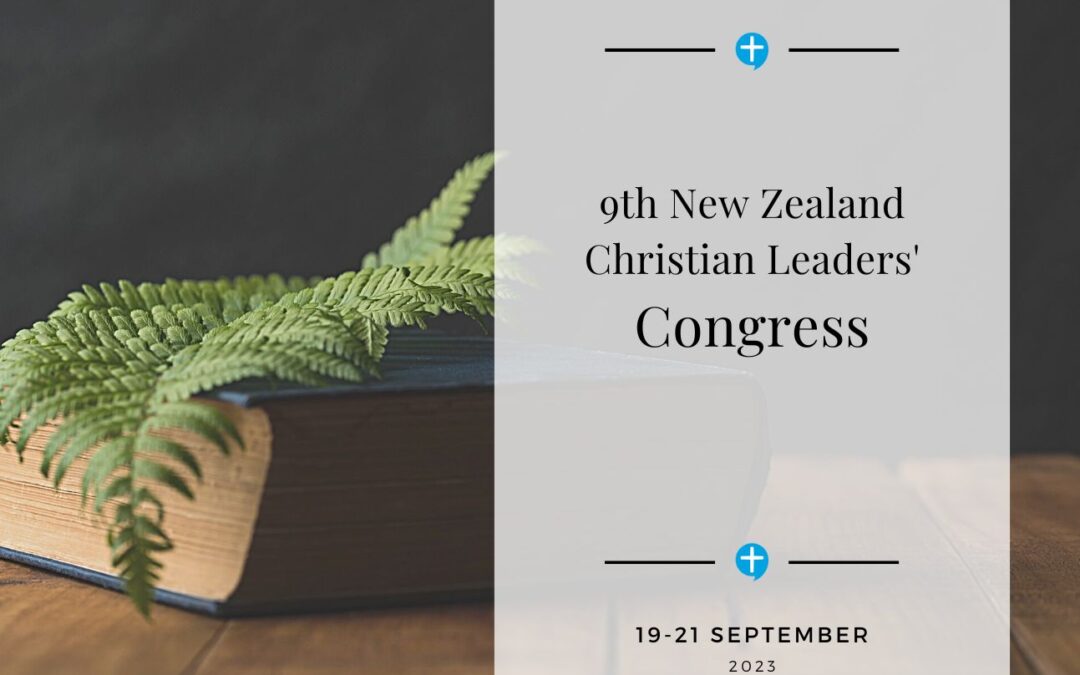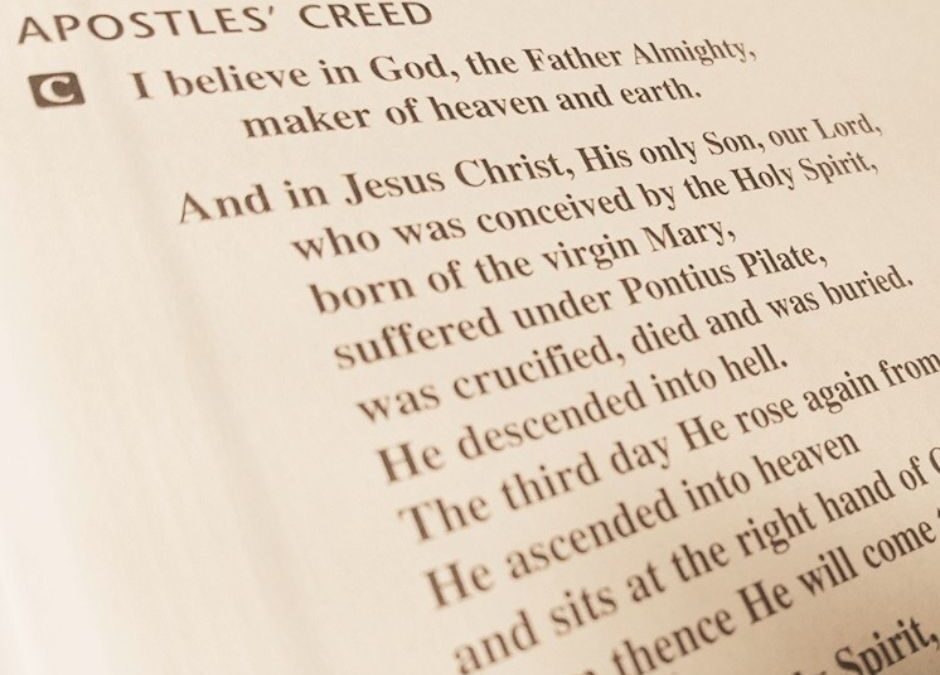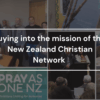
by Dr Stuart Lange | 3 Feb , 2023 | Articles, Christianity in New Zealand
PRAY for those who have been traumatised or demoralised by the recent floods, and for those – including churches – who are assisting them.
PRAY for the growing bi-cultural and multi-cultural unity of Aotearoa-New Zealand, and that Christians may be outstanding examples of inter-cultural oneness (see the article below, and join us on Pray As One at 8.00 pm on Waitangi Day).
PRAY for the Christians and churches in New Zealand, that they may be renewed in their faith in Christ, the Gospel and the Bible, that the Holy Spirit may deepen their life of prayer, that they may be full of faith, that they may be loving, that they may be wise, that they may be encouraged, and that they may be fruitful, growing, and of good repute.
PRAY for the Prime Minister, the Cabinet, and all Members of Parliament
- that they may make decisions which honour God and help everyone
- that, along with working for a good economy, all parties may be committed – in both word and action – to effectively address deep problems such as inequality, poverty, unaffordable housing, drugs, crime, the weakening of marriage and family, ongoing environmental degradation, and increasing moral confusions
- that the great wave of radical, loosely-written, and destructive social legislation – abortion ‘reform’, euthanasia, ‘conversion practices’, ‘hate speech’ etc. – may cease to roll through Parliament and society
- that the 2023 election campaign may rise above mere slogans, sectional interests, election bribes, accusations and counter-accusations, personality preferences, and instead thoughtfully deal with long-term problems
- that the 2023 election may result in more MPs who can be strong, courageous, persuasive voices for Christian faith and values.
PRAY for the New Zealand Christian Leader’s Congress, that this may be a great God-given time of oneness, stimulus, inspiration, heart-searching, prayer, and encouragement. Make sure you save the dates: 19-21 September 2023.

by Dr Stuart Lange | 16 Dec , 2022 | Articles, Christianity in New Zealand, Featured
Christmas and Christians
As Christians, we need to work hard to keep Christ central to Christmas. Our modern secularised society primarily sees Christmas as a special festive family get-together, with lots of food and drink, and as the start of the summer holiday season. Such a cultural tradition has its place, for sure, despite the pressures of getting everything ready.
For many people, the baby Jesus is at least faintly in the mix. But the true story of Christ’s incarnation has been generally eclipsed by the commercially-driven modern myth of Santa, flying reindeers, and loads of presents coming down every chimney (notwithstanding the distant thread of connection with a fourth century Christian bishop). And likewise overshadowed by other elements that make up a typical Kiwi Christmas.
However society at large may choose to celebrate Christmas, let us as Christian believers make Christ central, and be moved again in wonder that the infinite Creator and Lord of the universe has in his Son taken flesh and become God-with-us, to reveal more fully the love and truth of God, and to die and rise for our salvation.
New Zealand Christian Leaders Congress
We have received many highly positive responses to the news that next year, 19-21 September, NZCN will be hosting the 9th New Zealand Christian Leaders Congress. Many people sense that the time is right for Christian leaders to gather together, to hear from one another, and above to listen to what God is telling us. Read all about it here: What will it be like having 200+ New Zealand Christian leaders gathering together in the same room? Please (1) block out your diary for those dates (2) Keep letting us know about topics and speakers (and seminars) that you feel would be great for us to have (3) Remember this event in prayer.
NZCN’s Christmas and summer holiday close-down
The convenience of having an online membership with NZCN means that our church and Christain organisation members are still able to post new listings on our website. So, even though we won’t be sending out newsletters over the next six weeks, you can always check the website for new opportunities and to see what’s going on.
Please send a message if you need to get in touch and we will get back to you when we are able.
We wish you Meri Kirihimete me te Hape Nū Ia!

by Dr Stuart Lange | 12 Dec , 2022 | Articles, Christianity and Social & Moral Issues, Christianity in New Zealand, Featured
What will it be like having 200+ New Zealand Christian leaders gathering together in the same room?
We believe it will be stimulating, inspiring, challenging, thought-provoking, instructive, encouraging, Gospel-minded, and biblically grounded!
When will this happen?
From 6.00pm Tuesday 19 September 2023 to 3.30pm on Thursday 21 September 2023
Who is invited?
Pastors, church leaders, Christian organisation leaders, Christian leaders from different denominations, generations and cultures
Why at this time?
In our fast-changing and increasingly non-Christian society, Christian leaders need to reflect together, and to learn from one another about how we may best we live and communicate the Good News of Jesus in our contemporary Aotearoa New Zealand society
What topics will be featured?
State of the nation thinking about New Zealand churches and our current context in New Zealand (and if there are matters you really want to be covered, please tell us!)
Will there be workshops, seminars, and breakout rooms?
Yes, heaps of them
Will there be well-known overseas speakers who we may have seen on-line anyway?
No, that is not what we are aiming for. This is a New Zealand gathering, and we want to hear what the Spirit of God is saying to us through one another
Will there be long boring speeches?
No. The input will be quick-fire, and closely timed
Will there be opportunity to discuss, and to respond?
Yes
Will there be time to hang-out with friends and meet new ones?
Yes
Will there be worship, testimony, and prayer?
For sure
Where is the venue?
In South Auckland, near to the airport
Is this an Auckland event?
No, it is a national event (and it is in Auckland this time because it immediately follows the National Church Leaders meeting)
Will there be food?
Yes
Will there be accommodation on site?
No
Will it cost a lot to attend?
No
Do we have to be signed up members of NZCN to attend?
No (but it’s always a great idea to become NZCN member)
Can churches or organisations bring a team?
Yes, by all means
Can other organisations partner with NZCN to hold this event?
Yes, please get in touch (and also about having promotional booths, running workshops, suggesting speakers etc)
And what is this gathering?
It is the 9th NEW ZEALAND CHRISTIAN LEADERS’ CONGRESS (September 2023)
Should we immediately put this our diaries/calendars and keep it free?
Yes!!!
Should we start praying for this gathering?
Yes!!!

by Dr Stuart Lange | 5 Nov , 2022 | Articles, Christianity in New Zealand, Featured
A couple of weeks ago NZCN news reflected on the ongoing necessity of Christian believers sharing the good news of Jesus with others – in conversations, and in the teaching and preaching of our churches. We need to do that in ways which are loving, prayerful, clear, respectful, authentic, faithful, and empathetic.
From time to time, in addition to our everyday witness to Christ, there also come opportunities for large numbers of churches to work together in mass evangelistic gatherings. In 1959 and 1969, the Billy Graham meetings had a major spiritual impact on New Zealand.
Such an opportunity is again occurring very soon, with meetings in Christchurch, Wellington, and Auckland, at which Billy Graham’s son Franklin will speak. In a number of countries, Franklin Graham has proven to be an effective evangelist in his own right.
CHRISTCHURCH: 12 Nov, 6.30 p.m. in the Christchurch Arena
WELLINGTON: 16 Nov, 6.30 p.m. in the TSB Arena
AUCKLAND: 19 Nov, 6.30 p.m. in the Trusts Arena
The meetings will also feature live music.
All these events are free of charge, and everyone is welcome. Through the generosity of the Billy Graham Evangelistic Association, these events are at no cost to New Zealand.
No tickets are required, and coming early is strongly recommended. See the NZ God Loves You Tour website, which includes downloadable FAQ answers to practical questions about admission, transport, parking, and so on.
Like all of us, and like all Christian leaders, Franklin Graham is less than perfect. Some Christians in New Zealand – including NZCN leaders – have earlier raised questions about some of the opinions Franklin Graham has previously expressed in the context of American politics and culture wars. In some of those matters we may agree with him, in some we may disagree, in some we may be not like the way he said it, and in some we may see little or no relevance to New Zealand. We have been very strongly assured, however, that Franklin Graham is coming to New Zealand solely to preach the Gospel, and that he will stay clear of secondary and political matters.
There are several ways in which we can help these events to have a deep spiritual impact…
- Prayerfully INVITE friends and family members, and accompany them to the event.
- As an individual or a church, arrange or participate in a GROUP BOOKING, to facilitate bringing as many people as possible to the event. The BGEA says that 80% of those who respond to the Gospel at such events are invited by a friend, and 75 percent of those came by the same means of transport. Your church may want to arrange hiring buses.
- Above all, PRAY that God may move powerfully by his Holy Spirit, and that large numbers of people may come to faith and become committed followers of Jesus. Pray that these coming events are part of a much wider (and much needed) spiritual movement in New Zealand towards faith in Jesus.

by Dr Stuart Lange | 21 Oct , 2022 | About Christianity, Articles
Certainly, the Gospel of Jesus is magnificently good news. How in his great love the one true and living God has come into this broken world, in Jesus his Son. How through Jesus’ life, death, and resurrection, God offers us forgiveness, reconciliation, and new life with him now and forever. How in Jesus the Kingdom of God has come near, but one day it shall be fully revealed, and all creation shall be made new.
If God has done all that, then the very least we Christians can do share is share the good news with fellow human beings.
Actually, it is only the Holy Spirit who can truly convince people to turn to God through faith in Jesus, and enable people to receive new life in him. It can only happen as the Spirit of God moves in power.
Nevertheless, God generously partners with us in all this, and calls us to be active in sharing Christ with others. If we Christians were doing that more often, and more effectively, would the church in western societies be declining in the way it is?
Sure, many people in secular western societies are a tough audience: sceptical, relativistic, individualistic, pleasure-loving, uninformed or misinformed about Christianity, apathetic, and sometimes hostile and angry. And in our multi-cultural, multi-faith society, many New Zealanders now come from radically different religious backgrounds.
All that makes it all the more important that we believers must faithfully share Jesus with people in our society, and do so well.
Are there some problems with Christian messaging, in what is said (or not said) by speakers in church, and what is said (or not said) in conversations by ordinary Christians? Do we lack sufficient confidence in the Gospel, or lack conviction that sharing Christ with others really matters? Or have we distorted the Gospel?
In speaking of Jesus and the Gospel, we may say little or nothing, or be vague or unclear. On the other hand, we may say too much. We may fail to convey love, empathy, or sensitivity. We may inadequately connect with people, or insufficiently listen. We may be too formulaic. We may come across as aggressive or intimidating. Or our manner and actions may discredit our message.
In our challenging environment, it is so crucial that both preachers and ordinary Christians share Jesus with love, clarity, confidence, and authenticity. That we give reasons for our faith, and do so with gentleness and respect. That we are sensitive, listen, and empathise. And that, above all, we speak as prayerfully led by the Spirit of God.

by Dr Stuart Lange | 1 Oct , 2022 | About Christianity, Articles, Christianity in New Zealand
A recent Barna study of American pastors from across the denominational spectrum (including, for instance, Catholics, traditional Black churches, and Pentecostals) questioned 1,000 pastors on their beliefs. It concluded that only 37% of American pastors now hold a biblical worldview, and that most pastors were syncretistic – mixing Christian beliefs with those of secular culture and other religions. Many American pastors, the report asserted, “have abandoned even the most basic and hallowed biblical teachings for those which now permeate our culture”. Instead of the church influencing culture, culture is now reshaping the church. Many pastors now assume, for example, that truth and morality are matters of individual choice, and that having faith is more important than who or what you believe. The study found that a many “evangelical” and “Pentecostal” pastors have likewise been heavily influenced by secular culture and have sometimes slipped their biblical moorings.
Society and church in the USA and in New Zealand are significantly different, and the Barna study has some weaknesses. But such a study does indirectly raise questions about the state of Christianity in New Zealand.
How many of our New Zealand pastors – and church people – continue to profoundly believe that there is only one true God, that Christ is fully divine, that in Christ and the Scriptures God has truly spoken, that the Word of the Lord endures forever, that human beings are born sinful, that without repentance before God and faith in Christ we are lost, that Christ died for our sins, that Christ rose bodily from the grave and is alive for ever more, that Christ is the way, the truth and the life, that Christ sets us free, that the Holy Spirit works in believers to transform us, and that Christ is coming again to judge the living and the dead and to make all things new?
To what extent have Christians in New Zealand succumbed to worldly culture, dumbed down the faith, reduced it a few slogans or rituals, and filtered the Scriptures to accommodate our own doubts, ideas, and wants?
Biblical faith or contemporary culture? How can Christians respect their context, and speak well into their surrounding culture? How can they remain biblically faithful, rather than surrender to the assumptions and pressures of the culture they live in? From the beginning, Christians everywhere have always struggled with such dilemmas.











